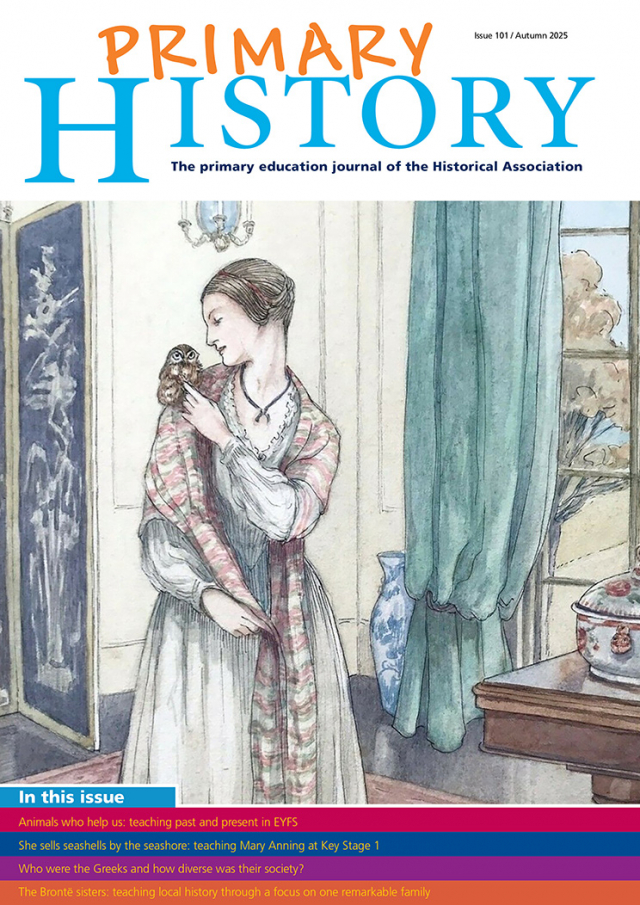Primary History 101: Out now
The primary education journal of the Historical Association

Editorial
When we were discussing editing issue 101, our minds immediately went to Dalmatians – the book and the film! As a result, there may be more references to animals than usual in this edition. Kate Rigby’s article draws out the ways in which animals have helped us, in both the past and the present, with a focus on remembrance. Karin Doull celebrates the 165th anniversary of Battersea, which serves as a refuge for dogs and cats. The more eagle-eyed may spot that Mary Anning also had a dog, but that is not the focus of Joanne McWhinney-Tripp’s article, which considers how to teach interpretations through a study of Mary Anning.
There is much more to this edition than animals, no matter how much we love them! We are delighted to have an article from Denise Greany and Andrew Hopper that provides a superb insight into how to teach the Civil War in the primary school. Sue Townsend provides a holistic understanding of ancient Greece by providing a nuanced appreciation of the diverse experiences of different people.
Some articles also make strong links between schools and their local area. Nick Harman provides an exciting initiative involving children collaborating with members of a local history society. Lorna Spencer has built on links with the Brontë Parsonage Museum in Howarth to support a local history study. Lindsay Marshall shows how learning about the past is enriched by the use of artefacts. A novel feature of this edition is the way in which we have suggested how children can engage with our poster on the Young Quills and Britain’s Civil Wars.
We have highlighted the recent Young Quills competition winners. Reading historical fiction can bring the past to life and, of course, reading for pleasure is vital; the Young Quills offers an annual insight into quality texts that we can use in the history classroom.
Finally, we are thrilled to have two articles that focus on student teachers. One is written by some student teachers who attended the HA Conference in Liverpool recently. The other article outlines an intensive training and practice model that focuses on student teachers teaching and assessing local history. This article is useful for anyone who is mentoring student teachers currently but also for anyone who wants to think about how to assess progression in history.

